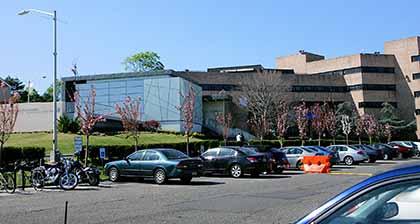By Anna Gustafson
Queensborough Community College in Bayside has received grant money that will help it study stormwater runoff on its campus in an effort to minimize the amount of excess water and pollutants that enter the local watershed and flow into Little Neck Bay and the Long Island Sound.
The college will match the $34,150 awarded by the Long Island Sound Futures Fund and the National Fish and Wildlife Foundation, and the resulting $68,300 will enable college officials and students to conduct a six- to eight-month study that will include monitoring the volume and quality of stormwater runoff from college parking lots and create a plan to replace the existing aslant in a college parking lot with porous asphalt. The porous asphalt is a relatively new stormwater management system that absorbs water.
The study is expected to begin in early 2011.
“Our goal is to create a sustainable redesign that will have a significant, positive impact on the local environment,” said Arthur Perkins, assistant dean for facilities, planning, design and construction at Queensborough, which is at 222-05 56th Ave. in Bayside.
Perkins said part of the study will be to conduct a feasibility study to see which of two parking lots would be best to first implement the porous asphalt. One of the lots is near the main gate on 56th Avenue and the other lot is in the far northwest corner of the campus on the border of the Oakland ravine.
“This is a great opportunity for Queensborough students to not only become involved in community-based projects, but also to gain practical experience in a rapidly growing area of employment,” said Mary Bandziukas, who is coordinating the service learning component of the project.
Community Board 11 Chairman Jerry Iannece also said he was pleased to hear about the project and noted that he had been urging the college for years to address its drainage issues.
“About a decade ago we identified a major culprit of the erosion of Oakland Lake was the college,” Iannece said. “I’m happy the college was able to find a way to do something about the parking lot.”
Perkins said he hopes this project will inspire other colleges to do similar projects. He also noted this project is part of the “whole sustainability initiative that CUNY is directing.”
“They’ve asked for 10-year sustainability plans from all the CUNY colleges,” Perkins said. “We’ve set out a number of short-term, medium-term and long-term goals. We’re working on increasing recycling, on composting, on energy-efficient lighting and on reducing water use. We’re looking at more energy-efficient vehicles, and we’re already recycling cooking oil to be used for fuel.”
Reach reporter Anna Gustafson by e-mail at agustafson@cnglocal.com or by phone at 718-260-4574.































